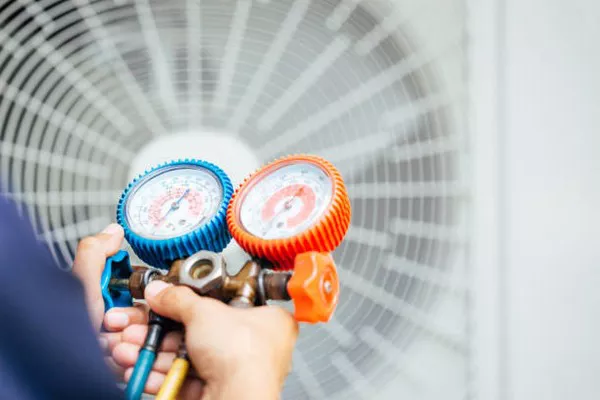In the realm of home air conditioning systems, few components are as crucial as the compressor. Often referred to as the “heart” of the air conditioning unit, the compressor plays a pivotal role in the refrigeration cycle that cools and dehumidifies the air inside your home. Understanding what a home AC compressor is, how it works, and its significance can empower homeowners to make informed decisions regarding their cooling systems.
What is a Home AC Compressor?
A home AC compressor is a mechanical device located within the outdoor unit of a split air conditioning system. Its primary function is to compress refrigerant gas, which initiates the cooling process. Compressors are typically powered by electricity and are essential components in maintaining the desired temperature and humidity levels within a home.
How Does a Home AC Compressor Work?
The operation of a home AC compressor is based on the principles of thermodynamics and the refrigeration cycle. The process begins when the compressor receives low-pressure, low-temperature refrigerant vapor from the evaporator coil located inside the home. As the refrigerant enters the compressor, it undergoes compression, resulting in an increase in pressure and temperature.
Once compressed, the high-pressure, high-temperature refrigerant gas moves to the condenser coil located in the outdoor unit. Here, the heat from the refrigerant is dissipated into the surrounding air, causing the gas to condense into a liquid state. The condensed liquid then travels to the expansion valve or metering device, where its pressure and temperature decrease as it enters the evaporator coil to repeat the cycle.
Types of Home AC Compressors
There are several types of compressors used in residential air conditioning systems, each with its unique characteristics and advantages:
Reciprocating Compressors: These compressors use pistons driven by a crankshaft to compress refrigerant gas. They are known for their durability and efficiency but may produce more noise compared to other types.
Scroll Compressors: Scroll compressors utilize two spiral-shaped scrolls—one stationary and one orbiting—to compress refrigerant gas. They are quieter and more efficient than reciprocating compressors, making them popular in modern air conditioning systems.
Rotary Compressors: Rotary compressors operate by rotating a shaft with vanes or blades inside a cylindrical chamber to compress refrigerant gas. They are compact, lightweight, and suitable for smaller air conditioning units.
Variable-Speed Compressors: Also known as inverter or variable-capacity compressors, these units can adjust their speed to match the cooling requirements of the home. They offer enhanced energy efficiency and precise temperature control.
Scroll Inverter Compressors: Combining the features of scroll compressors and variable-speed technology, scroll inverter compressors deliver efficient and quiet operation while providing precise temperature control.
Importance of a Home AC Compressor
The compressor serves as the backbone of the air conditioning system, playing a vital role in maintaining indoor comfort and air quality. Here are several reasons why the compressor is crucial:
Cooling Efficiency: By compressing the refrigerant gas, the compressor facilitates the transfer of heat from inside the home to the outdoor environment, effectively cooling the indoor space.
Temperature Control: The compressor regulates the pressure and temperature of the refrigerant, allowing for precise temperature control within the home.
Humidity Control: In addition to cooling the air, the compressor also removes excess humidity, creating a more comfortable indoor environment.
Energy Efficiency: Modern compressors, particularly variable-speed and scroll inverter models, are designed for optimal energy efficiency, helping homeowners reduce their electricity consumption and utility bills.
System Longevity: A well-maintained compressor can significantly prolong the lifespan of the air conditioning system, reducing the need for costly repairs or premature replacements.
Maintaining Your Home AC Compressor
To ensure the proper functioning and longevity of your home AC compressor, regular maintenance is essential. Here are some maintenance tips:
Change Air Filters: Dirty air filters can restrict airflow, leading to increased strain on the compressor. Replace air filters regularly to maintain optimal airflow and efficiency.
Clean Outdoor Unit: Keep the outdoor unit free from debris, vegetation, and obstructions to ensure adequate airflow for heat dissipation.
Schedule Professional Inspections: Arrange annual inspections by HVAC professionals to check the compressor, refrigerant levels, electrical connections, and overall system performance.
Monitor Thermostat Settings: Avoid setting the thermostat too low, as it can cause the compressor to overwork and increase energy consumption.
Address Issues Promptly: If you notice any unusual noises, reduced cooling performance, or other signs of compressor malfunction, seek professional assistance promptly to prevent further damage.
See Also Why Your Air Compressor Isn’t Turning On and How to Fix It
In conclusion
the home AC compressor is a vital component of the air conditioning system, responsible for compressing refrigerant gas and facilitating the cooling process. Understanding its function, types, and significance can empower homeowners to make informed decisions regarding maintenance, repairs, and upgrades, ultimately ensuring optimal indoor comfort and energy efficiency.
By prioritizing regular maintenance and addressing issues promptly, homeowners can maximize the lifespan and performance of their home AC compressors, contributing to a more comfortable and sustainable living environment.

